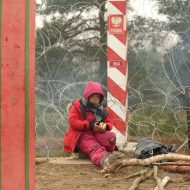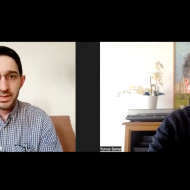Palestine is going to elections again for the first time after 14 years.
President Mahmoud Abbas signed a decree that confirmed parliamentary elections on May 22nd and presidential elections on July 31st.
Palestine has perhaps entered one its most critical turning points in history, after more than half a century of a struggle for the Palestinian independence, the toughening Israeli occupation and the US moves to isolate the country internationally.
In order to understand the elections, which will be held in such a difficult period of time, it is necessary to evaluate not only the power balances inside Palestine but also the international paradigms.
Palestine as a conflict zone
The Palestinian people’s righteous struggle against the Israeli occupation aside, the Palestinian lands have been one of the conflict zones of international polarization against the United States and Israel, for many years.
The international power balances have played a key role in shaping the country’s political movements.
We can see the effects of this more clearly, when we look at the structures in Palestine today.
So much that;
The al Fatah, the party that first ignited the Palestinian independence struggle, has historically received the support of its neighbour Egypt, and the support of Russia, and then tried to balance its relations with the United States after the Soviet Union collapsed in 1991.
The 1993 Oslo Accords and the Camp David Summit in 2000 were the solid consequences of the increasing influence of the United States upon Fatah and upon Palestine as a whole.
Recently, there have been signs of distancing between Fatah and the United States, especially following the Abraham Accords, which had been used as a cover for the Israeli annexation of Jerusalem. But of course, it is also worth mentioning that the main factor of this change of axis of Palestine is the slow and steady defeat of the United States in the Middle East as a whole.
As the elections near, the Fatah organization is divided between Abbas supporters, the Gulf-backed Mohammed Dahlan group and the supporters of Marwan Barghouti, who was imprisoned by an Israeli plot after Yasser Arafat’s death.
The Hamas, which controls the Gaza Strip, has become active in Palestine in the 1980s as a result of the rising political Islamist wave. Hamas was part of the so-called Green Belt Project.
The organization turned its back on Damascus during the civil war in Syria, taking a position closer to Turkey and Qatar, while maintaining ties with Iran.
The toppling down of the Muslim Brotherhood government in Egypt has led to a situation, where Hamas was enclosed to the Gaza Strip.
It is expected that the organization follows a different strategy in the upcoming elections, supporting the path of a national reconciliation government that unites different political currents.
Another active force in Palestine, the Islamic Jihad Movement, has close ties to Iran and Hezbollah in Lebanon.
They have declared that they would not participate in the elections, saying that the elections were organized as a part of the Oslo Accords signed between the PLO and Israel in 1993.
The Palestinian Liberation Front, which has close ties to Damascus, has lost power after the civil war in Syria but continues to take part in the Palestinian political scene as a well-organized force.
In short, when we consider all these different actors in Palestine together, it is not difficult to conclude that the coming elections are not only a matter of domestic policies but directly related to the power struggle in the entire region.
Palestine in the international context
When we consider the Palestinian struggle for independence as a whole, we can make the following conclusions about the recent periods;
1. Iran and Syria have been some of the most important supporters of the Palestinian struggle for independence, for many years. The civil war in Syria and the instabilities in Lebanon have weakened the Palestinian struggle both politically and economically, as well as disrupting the military supply lines between Iran-Syria-Lebanon-Palestine.
2. Due to Egypt’s mistrust towards the Muslim Brotherhood, the struggle of Hamas and other organizations in the Gaza Strip has been isolated.
3. With the Gulf countries, which already had close ties to the United States, formalizing their relations with Israel under Abraham Accords, Palestine got both economically weakened and politically isolated in the region.
4. The Russian influence on the Palestinian struggle has continued, ever since the times of the Soviet Union. However, Moscow’s sensitive attitude towards its relations with Tel Aviv remains an obstacle for a strong support towards the Palestinian struggle.
5. Turkey’s abandonment of traditional politics of supporting Fatah and focusing more on Hamas in relations with Palestine limits Ankara’s big tent role in Palestine. On the other hand, Turkish government’s hesitation on closing the doors to Israel, in connection with the Eastern Mediterranean, also limits its support for the Palestinian struggle.
6. Political fracturing, conflicts over smaller benefits between different groups, and the rising corruption continue staggering the struggle for independence in Palestine.
Can the alliance of Turkey-Iran-Russia be implemented to Palestine?
The main factor in Palestinian liberation of the occupied territories is, of course, the struggle of the Palestinians themselves, which has been going on for more than half a century.
However, given the political, military and economic power of Israel and its ally, the United States, Palestinians need to seek alliances.
Turkey, Iran, and Russia, on the other hand, are the three major countries in the region that have had clashes with the United States on different levels. All three countries are trying to answer Washington’s aggressions by introducing own models of cooperation among themselves.
However, all these three countries are putting their best effort to soften conflict with the United States in the meantime too.
For example, Turkey’s politics of balance with Washington, Iran giving a new chance to the nuclear deal with the new US administration, and Russia’s policies that focus on avoiding direct conflicts with the United States.
However, as the course of history shows us, it is not possible to negotiate with the United States, and every step we take back, causes Washington to take a step forward eventually.
The policies of these three countries towards Israel, which acts like a US outpost in the region, are gaining importance at this point.
While Iran is already in a state of war with Israel, Turkey and Russia maintain relations with Israel for different reasons.
Although the politics of balance in question are understandable in the short and medium-term, in the long term these politics hinder the expulsion of the United States from the region.
A strong Israel under the US control will lead to the perpetuation of instability in the region, and therefore the perpetuation of the Atlantic influence.
Therefore, if the Turkish-Iranian-Russian axis widens its existing cooperation in Syria towards Palestine, it would make a strong move to the root cause of the problems in the region.
A just solution to the Palestinian-Israeli question under the umbrella of these three countries would relieve the region. And if the balances are established correctly, this would also force Israel to move away from the United States and follow a policy in harmony with the region.
Otherwise, Israel will continue to be a battering ram for the United States in the region, and we will keep waking up to more Palestinian crises, Syrian civil wars and Lebanese crises, and Iraqi instabilities.
To put it candidly;
1. The summits in Ankara, Moscow and Tehran with Palestinian organizations about the elections can be organized under one big tent. Considering Turkey’s influence on Hamas, Moscow’s influence on PLO and Iran’s influence on Islamic Jihad Movement, there seems to be no reason why a joint solution should not be reached.
2. The Egyptian authorities may be included in such an initiative, as the country is Palestine’s neighbour and has a large influence.
3. That way, the formation of a government of national accord that includes all the organizations in Palestine can be established. This would also carve the way for some concrete steps towards the peace talks between Palestine and Israel.
If Ankara, Moscow and Tehran take the initiative on Palestine, the US would immediately lose another pivot in the region.









Dear Mt Güzaltan, Thank you for the very intense article. I realize that I just read it almost a year after its publication. With all the densely-packed, bullet-pointed and insightful information, I will have to reread it. My initial interest was simply to understand more about the potential of Russia’s alliance with Palestine. I am an American working for Palestinians–Gazans specifically, And “for their freedom”, to be exact. It is a year later, Russia is very focused on Ukraine. I’m curious what your updates, if any, to this article could be. Are there any changes?
Thank you,
Anna